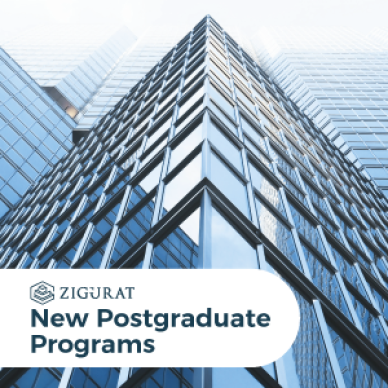
Zigurat launches new Postgraduate Programs in Virtual Reality and Parametric Design
Categories

The start of the next academic year brings new 12-week training proposals. In the coming October, three state-of-the-art Postgraduate programs will start in the fields of Parametric Design and Virtual Reality. After the success of the English and Portuguese editions of the postgraduate program in Parametric Design with Visual Programming in BIM, the school is now launching its Spanish edition. In addition, it is also launching two editions (one in Spanish and one in English) of a new postgraduate course on Virtual Reality for Architecture. Zigurat is always aware of the new trends and needs of the industry. Therefore, every year, the school designs new programs that aim to offer students the most cutting-edge, up-to-date and disruptive training in the market.
Below, we present the new 12-week training proposals that will start next October.Virtual reality is one of the most effective interactive tools when it comes to conceiving spaces and presenting projects to clients. For this reason, Zigurat has created a new course that will allow participants to acquire the necessary skills to create immersive, hyper-realistic, and effective experiences.
This will be possible thanks to the mastery of Unreal Engine (Epic Games), a latest-generation game engine that makes it possible to create scenarios for architecture and interior design projects without the need for endless renders.
Having trained in this discipline, provides multiple advantages, such as anticipating problems or a more continuous review of projects with a consequent increase in foresight and rigor.
Edition available in English:
Edition available in Spanish:
After the success of the English and Portuguese editions of the postgraduate program in Parametric Design with Visual Programming in BIM, Zigurat is now launching its Spanish edition.
The aim of this new course is the development of new skills related to BIM-based programming. This will be made possible through training in visual programming languages (Grasshopper and Dynamo) and textual programming (Python).
This course aims to provide the programming skills necessary to improve BIM modeling workflows, facilitate design exploration and analysis, automate time-consuming tasks, and promote information exchange.
These skills, in turn, help reduce project risks, uncertainties and costs, accelerate the design process and help minimize waste from the earliest stages.


